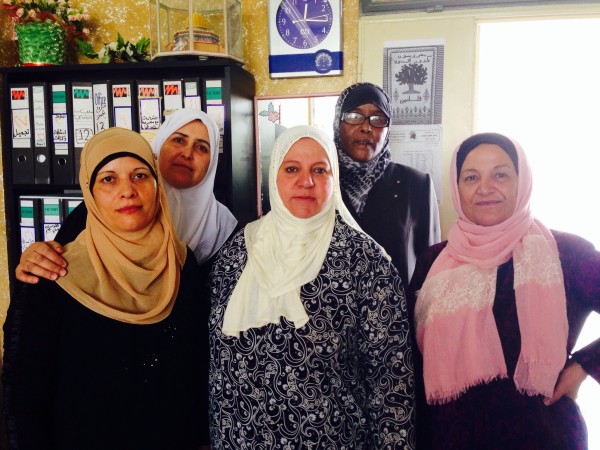22nd July 2014 | International Solidarity Movement, Nablus team | Balata, Occupied Palestine
The Abu Leel family are refugees, who fled from Haifa to Balata refugee camp in Nablus in 1948.
Asma Alshmeer gave birth to 10 healthy children, five of whom have been killed by the Israeli military. The first was killed when he was a child during the first intifada. A soldier came to the family home and knocked on the door. When the family did not open the door, he threw a tear gas grenade inside the house, and child died from gas suffocation. The second son was killed during the second intifada. A soldier stopped his car and ordered him to pick up a stone. When he bent down to pick it up, the soldier executed him. The third son was killed by an Israeli rocket attack during the second intifada when he was praying in the souq (market) during a protest in support of Palestinian prisoners. Asma was unable to fully speak about the last two stories, due to devastating pain of the loss.
Of the remaining five children, four have spent considerable time in prison; one for two years, three of them for five and a half years and the last one is still in prison serving a life sentence. This story is a typical experience of Palestinian refugees living in Palestine. Almost every family living in the refugee camps has had family members killed, imprisoned or badly injured by soldiers, and many have had their homes damaged or destroyed.
There are many refugee camps both inside and outside of Palestine. The refugee camps were built following the Nakba (catastrophe) in 1948 when Palestinians were forced from their homes. In the beginning all the refugee camps were build in small areas made of tents as people initially believed this to be a temporary situation. However, as time progressed, the number of refugees living in the camps has only increased, particularly following the 1967 war and Israel’s subsequent occupation of the West Bank and Gaza. Due to land confiscation and the oppression of the occupation, more and more Palestinians have been forced into the camps, which have been ill prepared to deal with this influx.
Refugee camps all around Palestine therefore suffer from difficult conditions, including lack of adequate infrastructure and severe overcrowding. 30,000 residents live in an area no bigger than 0.25 square kilometers in Balata. Streets are narrow, and daylight limited. These difficult conditions and trauma of the occupation have caused social problems including unemployment, drug abuse, domestic violence, and lack of formal education.
However community organizations are working hard to respond to these difficulties. For example the Children Center in Balata Camp arranges activities with the children to help them deal with the trauma of domestic violence. The center is also planning to conduct interviews with young boys who have been in prison, to write about their experience and to offer support as they attempt to recover.
Askar refugee camp, which is also in Nablus, has a population of 31,629 people. There the local Women’s Center provides support to women to support their independence both economically and in terms of education.

They cover issues of gender equality and provide support in the context of domestic and marital difficulties. The center also offers a kindergarten and a fitness room and provides vocational adult education. Courses include cookery, cosmetology, sewing and embroidery. Due to their lack of funding, the two centers are in search of organizations that are able to provide support.

